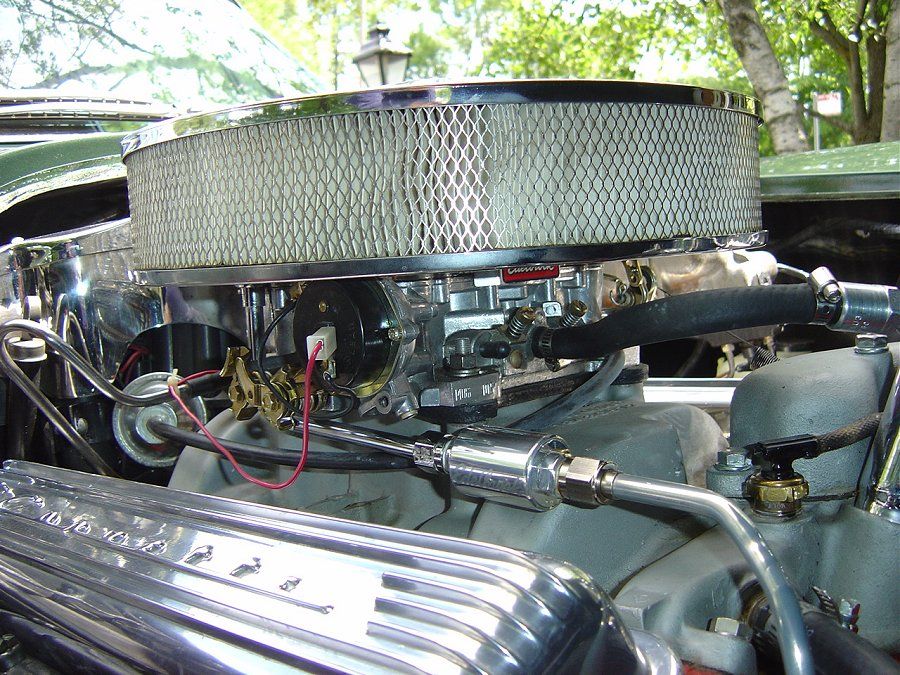I've got a 67 327/300 powerglide Convertible which is an NOM but correct Holley carb. The former owner already had the carb rebuilt to try to eliminate an intermittant carb whistle, which didn't work. I know from the receipts the rebuild consisted of a standard Holley rebuild kit plus labor, (which I am guessing is not a fix for a whistling carb) and the carb otherwise runs great except when it decides to whistle (which it does at least once every drive and it makes me nuts).
My inclination is to buy a new carb and just put the existing one on the shelf for the future (should I ever decide to source a casting # correct block and go the NCRS judging route). A new carb also means I don't have to send my current carb out and wait/hope assuming a different rebuilder could actually solve the whistle problem.
Is there a current day replacement carb that is a direct bolt-on, same throttle linkage, matches existing fuel line and air cleaner, has an available choke (or comes with it) and all, so I could just unbolt the old and bolt on and set the idle on the new carb and be off? Or am I pretty much stuck with buying another 4160 Holley Model 3810?
Second part of the question, whom would you suggest as a good place to buy a carb?
I see that Chicago Corvette has inventory of reman carbs, but don't know if that's a good choice quality wise. And it's tough figuring out what I should have when I go to sites like Summit or Edlebrock looking for carbs.
I saw an older post in the archives that an edlebrock 1406 has been used but not sure whether that requires changing the fuel line connection. That's the kind of feedback I'm looking for--what works and is still out there in 2010. Thanks.
My inclination is to buy a new carb and just put the existing one on the shelf for the future (should I ever decide to source a casting # correct block and go the NCRS judging route). A new carb also means I don't have to send my current carb out and wait/hope assuming a different rebuilder could actually solve the whistle problem.
Is there a current day replacement carb that is a direct bolt-on, same throttle linkage, matches existing fuel line and air cleaner, has an available choke (or comes with it) and all, so I could just unbolt the old and bolt on and set the idle on the new carb and be off? Or am I pretty much stuck with buying another 4160 Holley Model 3810?
Second part of the question, whom would you suggest as a good place to buy a carb?
I see that Chicago Corvette has inventory of reman carbs, but don't know if that's a good choice quality wise. And it's tough figuring out what I should have when I go to sites like Summit or Edlebrock looking for carbs.
I saw an older post in the archives that an edlebrock 1406 has been used but not sure whether that requires changing the fuel line connection. That's the kind of feedback I'm looking for--what works and is still out there in 2010. Thanks.

Comment